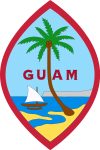
Each of the 50 U.S. states, the District of Columbia, and five territories of the United States holds either primary elections or caucuses to help nominate individual candidates for president of the United States. This process is designed to choose the candidates that will represent their political parties in the general election.
A straw poll, straw vote, or straw ballot is an ad hoc or unofficial vote. It is used to show the popular opinion on a certain matter, and can be used to help politicians know the majority opinion and help them decide what to say in order to gain votes.
Guam elects on the territorial level a governor and a legislature with the governor elected for a four-year term by the people. The Legislature of Guam has fifteen members elected at large in an open primary for two year terms.

The 2008 United States presidential election in Iowa took place on November 4, 2008, as part of the 2008 United States presidential election. Voters chose seven representatives, or electors to the Electoral College, who voted for president and vice president.

Voters of the Republican Party elected state delegations to the 2012 Republican National Convention in presidential primaries. The national convention then selected its nominee to run for President of the United States in the 2012 presidential election. There were 2,286 delegates chosen, and a candidate needed to accumulate 1,144 delegate votes at the convention to win the nomination. The caucuses allocated delegates to the respective state delegations to the national convention, but the actual election of the delegates were, many times, at a later date. Delegates were elected in different ways that vary from state to state. They could be elected at local conventions, selected from slates submitted by the candidates, selected at committee meetings, or elected directly at the caucuses and primaries.

The 2012 United States presidential election in Idaho took place on November 6, 2012, as part of the 2012 United States presidential election in which all 50 states plus the District of Columbia participated. Idaho voters chose four electors to represent them in the Electoral College via a popular vote pitting incumbent Democratic President Barack Obama and his running mate, Vice President Joe Biden, against Republican challenger and former Massachusetts Governor Mitt Romney and his running mate, Congressman Paul Ryan. Prior to the election, 17 news organizations considered this a state Romney would win, or otherwise considered as a safe red state. Romney and Ryan carried Idaho with 64.09% of the popular vote to Obama's and Biden's 32.40%, thus winning the state's four electoral votes. Romney's victory in Idaho made it his fourth strongest state in the 2012 election after Utah, Wyoming and Oklahoma. He improved on McCain's performance in 2008, expanding his margin from 25.3% to 31.69% and flipping Teton County which had previously voted for Obama.
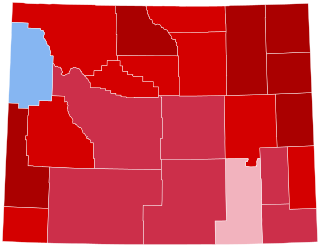
The 2012 United States presidential election in Wyoming took place on November 6, 2012, as part of the 2012 United States presidential election in which all 50 states plus the District of Columbia participated. Wyoming voters chose three electors to represent them in the Electoral College via a popular vote pitting incumbent Democratic President Barack Obama and his running mate, Vice President Joe Biden, against Republican challenger and former Massachusetts Governor Mitt Romney and his running mate, Congressman Paul Ryan.

The 2016 United States presidential straw poll in Guam was held on November 8, 2016. Guam is a territory and not a state. Thus, it is ineligible to elect members of the Electoral College, who would then in turn cast direct electoral votes for president and for vice president. To draw attention to this fact, the territory conducts a non-binding presidential straw poll during the general election as if they did elect members to the Electoral College.
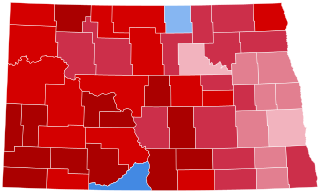
The 2016 United States presidential election in North Dakota was held on Tuesday, November 8, 2016, as part of the 2016 United States presidential election in which all 50 states plus the District of Columbia participated. North Dakota voters chose electors to represent them in the Electoral College via a popular vote, pitting the Republican nominee, businessman Donald Trump, and running mate Indiana Governor Mike Pence against Democratic nominee, former Secretary of State Hillary Clinton, and her running mate Virginia Senator Tim Kaine. North Dakota has three electoral votes in the Electoral College.
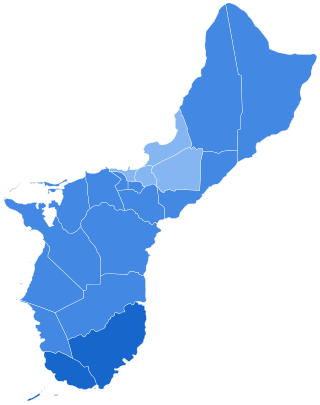
The 2008 United States presidential straw poll in Guam was held on November 4, 2008. Guam is a territory and not a state. Thus, it is ineligible to elect members of the Electoral College, who would then in turn cast direct electoral votes for president and for vice president. To draw attention to this fact, the territory conducts a non-binding presidential straw poll during the general election as if they did elect members to the Electoral College.

Although the United States Virgin Islands did not participate in the 2020 presidential election because it is a U.S. territory and not a state, it still participated in the U.S. presidential caucuses and primaries. Former vice president Joe Biden won the Democratic caucuses, held on June 6. The Republican caucuses, held on March 14 in the form of a territorial convention, voted for incumbent president Donald Trump.

Although Guam did not participate in the 2020 presidential election because it is a U.S. territory and not a state, it still participated in the U.S. presidential primaries and caucuses. Former vice president Joe Biden won the Democratic caucus, held on June 6. The Republican caucus, held on March 14 in the form of a "state convention", endorsed incumbent President Donald Trump.

Although Puerto Rico does not participate in U.S. presidential general elections because it is an unincorporated territory and not a state, and therefore cannot send members to the U.S. Electoral College, Puerto Ricans are citizens of the United States and are able to participate in the U.S. presidential primaries.
Although Guam did not participate in the 2024 presidential election because it is a U.S. territory and not a state, it participated in the presidential primaries and caucuses.

The 2000 American Samoa Democratic presidential caucuses were held on March 7, 2000, as part of the 2000 Democratic Party primaries for the 2000 presidential election. 3 delegates to the 2000 Democratic National Convention were allocated to the presidential candidates, the contest was held on Super Tuesday alongside primaries and caucuses in 15 other states.
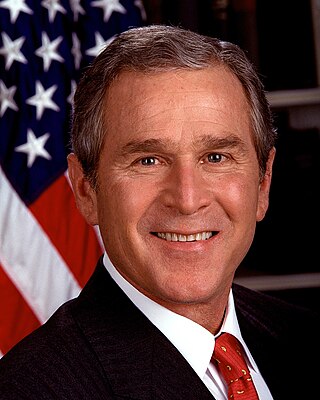
The 2000 American Samoa Republican presidential caucuses were held on February 26, 2000, as part of the 2000 Republican Party primaries for the 2000 presidential election. 4 delegates to the 2000 Republican National Convention were allocated to the presidential candidates, the contest was held alongside primaries in Guam and the Virgin Islands.

Although American Samoa will not participate in the 2000 presidential election because it is a U.S. territory and not a state, it participated in the U.S. presidential primaries and caucuses for both the Democratic and Republican parties.

The 2000 Guam Democratic presidential caucuses were held on March 18, 2000, as part of the 2000 Democratic Party primaries for the 2000 presidential election. 6 delegates to the 2000 Democratic National Convention were allocated to the presidential candidates.

The 2000 Guam Republican presidential caucuses were held on February 26, 2000, as part of the 2000 Republican Party primaries for the 2000 presidential election. 4 delegates to the 2000 Republican National Convention were allocated to the presidential candidates. The contest was alongside primaries in American Samoa and Virgin Islands.

The 2000 U.S. Virgin Islands Democratic presidential caucuses were held on April 1, 2000, as part of the Democratic Party primaries for the 2000 presidential election. 6 delegates to the Democratic National Convention will be allocated to presidential candidates.
